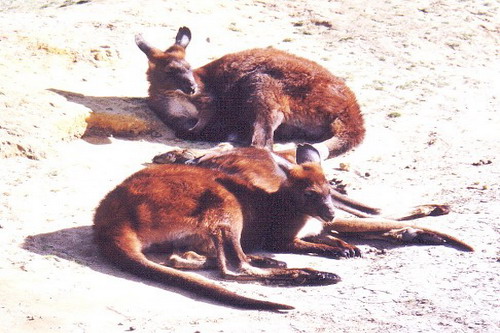It is Mondye. There I go again, playing with the Australian English accent as I type.
- The local school environment has influenced and changed the way my daughter speaks English. It is more than just the accent; it is complete annihilation and total destruction. I would have ignored and perhaps accept the adverse influence on speech if I had not been through years of education in the English language. To listen to her ending sentences with ‘lah’, ‘loh’, ‘leh’ and ‘ma’, and mixing local dialects in between her sentences send me chill down my spine as if I am staring at an innocent soul tainted and possessed by a horrible spirit.
- It is just inevitable I thought, when 90% of the Singapore population speak English with the native accent and proudly develop it into what is to become known as Singlish. If you were not Hokkien, Malay, Teochew or Cantonese, you would hope that you might just be the 10% that will not be affected. How very wrong. In the first two weeks of school, I was back speaking English with a local flavour, if only you could hear me. You know that this is a home for English speakers which will forgive you if you cannot slang or twang like a native Australian, British or American. The society has a far more prestigious and superior need than to speak like one.
- One cannot throw out this Singapore accent as you might with the English accent which had ‘cultivated’ the Australian accent. You would probably succeed in influencing the intellectual environment to speak and teach the national standard of English, Malay or Mandarin, but you will continue to stare blankly at the power natives have in customizing and binding English imports with local twangs. The people characterized by the food eat, the lifestyle, mother tongue and not to mention religious and faith, will not be swayed by any conscious effort to ‘help’ the way they speak English, which is as foreign as winter in the tropics.
- As much as I am intrigued by slangs used by locals, I am more baffled by the development of the English accent in this region. The ‘G’day mate’ pronounced with the characteristic British twang ‘G’dai mite’, has become symbolically Australian for many Asians.
- The general Asians have very little to no interest to understand the history behind how accent has developed, except to feel this is a necessary present to bring home after visiting a foreign country as a tourist. The ‘G’day mite’ is part of the reason people want to go to Australia, to experience a different English culture.
- Education, as it promises, frees me from being naïve at knowing the value of speaking proper English, unmixed with local twangs. Proper spoken language is important for understanding comprehension, appreciate literature and improve the quality of our compositions. I am saddened and well, welcome the move if any, to find a national Australian accent. But like the Singapore Singlish accent, the “prestige and power of the foundation accent”, which was established by the local natives through generations, will hold itself against the influence of any foreign English accent whether American or British accent.
- Hope not for a Singlish free school or public environment; it is here to stay. I am sure many will agree that it is already impossible to correct the imperfect modulations of the mother tongue which we carry into our adulthood from childhood; while we are still struggling to preserve native traditions, culture and customs by way of using language as a tool for instruction to our young generation.
If the Australian ‘extreme sounds’ vanishes, there will be less for non-native speakers to appreciate of the Australian culture apart from kangaroos, koalas and local Aborigines. Changing the Australian English language acccent takes away the local flavour that characterises the people of the society.
This post is a response to a new book Dr Moore, director of the Australian National Dictionary Centre, in Canberra. Click here for reference.
“As Game As Ned Kelly” is a phrase to describe the a person who is fearless against all odds. Australian News.



I was very happy to find this web-site.I wished to thanks on your time for this wonderful read!! I definitely enjoying each little little bit of it and I have you bookmarked to check out new stuff you blog post.
Awesome article.
Thank you!